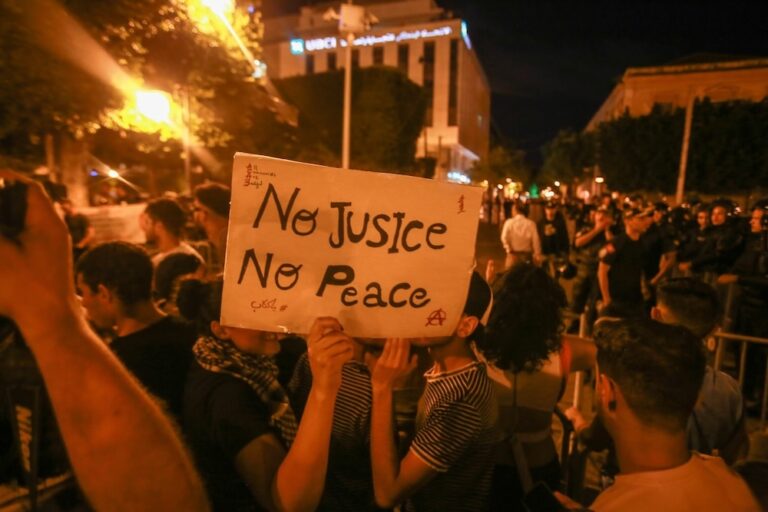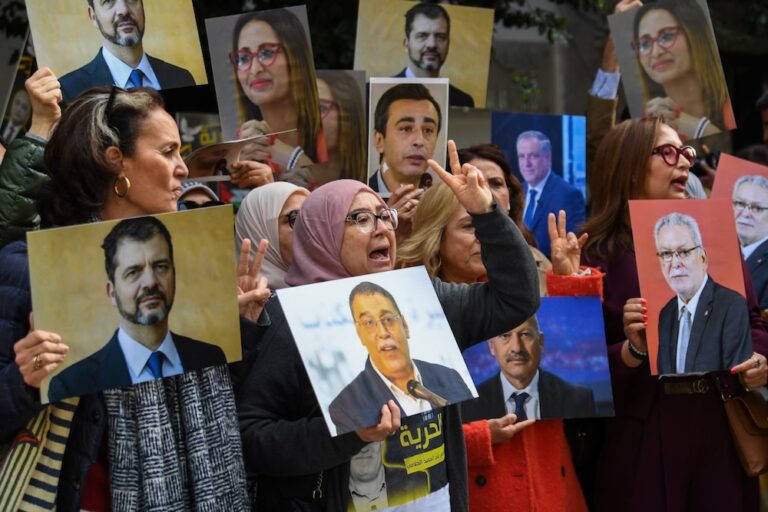Journalist Zouhayr Makhlouf was assaulted by the police in front of his home, while his daughter and wife were watching, for not complying with orders to not go to Sidi Bouzid.
(OLPEC/IFEX) – Since the beginning of the Sidi Bouzid riots on 17 December 2010, which followed the burning of a new and unemployed graduate, the police have banned any access to the city. Most journalists who tried to cover the incidents have faced police violence.
On the afternoon of 17 December, Zouhayr Makhlouf, a correspondent with http:/www./assabilonline.net, was assaulted by the police in front of his home, while his daughter and wife were watching, for not complying with the orders to not go to Sidi Bouzid. As a result, Makhlouf suffered several contusions and bruises on his face and body.
Since 19 December, several independent journalists, among them, Ismail Dbara, a correspondent with http://www.elaph.com , were placed under police surveillance banning them from leaving their town of residence. Nizar Ben Hassen, a correspondent with Radio Kalima, was followed by three police cars near his home close to Chebba and specifically forbade him from going to Sidi Bouzid to cover the riots.
On 20 December, Moez El Bey, another correspondent with Radio Kalima, who was also under police surveillance, was picked up by the police at the exit of the Sfax hospital where he interviewed one of the people injured during the riots. He was later taken to the hospital police station where he underwent a humiliating body search; the police officers confiscated his equipment and returned it to him after erasing all his recordings. They also took the memory card from his camera and threatened him with reprisals if he it attempted to cover any incidents related to Sidi Bouzid.
While independent journalists are prohibited from doing their work, the state media have qualified the Sidi Bouzid riots as “unfounded rumours” quoting an official source expressing outrage “at the attempts of certain parties to use this isolated incident, take it out of its true context and exploit it with corrupt political intentions by making a human rights and freedom issue out of it [ . . . ] and by questioning the development of the region.”
OLPEC:
• denounces the violence exerted against the journalists who did nothing but their jobs.
• considers that the government attitude of denial is not a smart strategy and that the work of journalists who want to shed light on these events and inform the public in an honest manner is the best strategy for refuting allegations by the official authorities who seek to hide the truth from Tunisian citizens by using a process of misinformation.
• believes these acts constitute a violation of the Tunisian State’s commitments as regards freedom of expression and in particular Article 19 of the International Covenant on Civil and Political Rights relating to the civil laws and policies which states that: “Everyone shall have the right to freedom of expression; this right shall include freedom to seek, receive and impart information and ideas of all kinds, regardless of frontiers, either orally, in writing or in print, in the form of art, or through any other media of his choice.”


